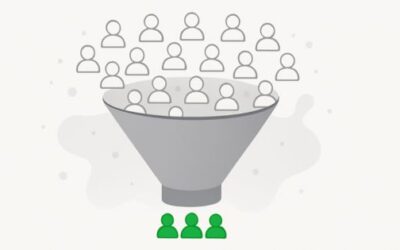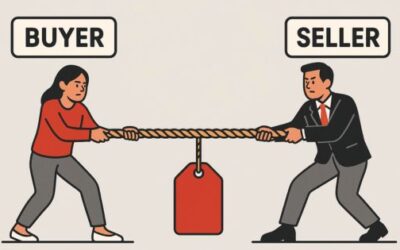Salespeople: Where Is It?
If you’re a salesperson, take a look at all the opportunities in your CRM.
If you’re a sales manager, or the CRO, or even the CEO, go look at the opportunities your salespeople have put in the CRM.
Comb through each opportunity, look at the notes, next steps, past emails…look through the entire thing.
I bet you can’t find it. I bet 90% of the opportunities you look through don’t have it and that “it” is costing you and your company hundreds of thousands, if not millions, of dollars.
What is it that you can’t find? What is it that I’m making you scurry about looking for?
It’s the reason the prospect is looking to buy.
I’m referring to why your buyer wants to buy. I’m referring to your buyer’s motivation; what’s behind your prospect’s or customer’s desire to spend the time and money to change their situation.
The motivation or the reason an organization is looking to buy is the greatest and most important piece of information in the sales process, yet few sales people know it. Even fewer document and sell to it.
If you’re serious about getting to the close, if you’re serious about being a trusted advisor, if you’re serious about making quota, there is nothing more important in your CRM than the reason why the prospect is looking to buy.
Want Sales Tips Straight to Your Inbox Every Sunday? Join Our Newsletter!
One of the first questions I ask when I’m evaluating an opportunity with a sales person is; “Why do they (your prospect) want to buy?”
The answers I get will astound you, however, the most depressing and most standard answer is: “I don’t know.”
As a sales person, how can you not know why your prospect wants to buy?
When a salesperson thinks they know, their answers are commonly off target. They respond with things like: They’re not happy with their current system, or they want to be more efficient, or they’re on an old system, or they have a new CMO, and they want something different.
Believe it or not, these are some of the best answers I get. Unfortunately, they are terrible answers as they lack substantive, measurable reasons. Why aren’t they happy with their current system and why do they think they need a new one? Why do they need to be more efficient, and how do you define “more efficient?” Why does the CMO want a new system? Why don’t they like the old one?
None of the common answers I get offer the insight required to understand the intrinsic motivation of their buyer. They are missing the root cause of the prospect’s motivation.
Success in sales requires you to start with the buyer’s reasons for a change. What’s happening in your prospect’s environment that they feel must change, and why must it change has to be documented in the CRM.
It’s not enough to know, to have it in your head. It needs to be documented in the CRM and constantly revisited. It needs to be robust and complete. I suggest at bare minimum these CRM fields:

Why do they want to change?
Outline thoroughly what’s happening in the current environment and why they need to change. Why did they finally decide that now was/is the time to make a change? What happens if they don’t change? What are they hoping to accomplish by changing? Be as detailed as possible. Also, don’t accept surface level answers like “it’s inefficient”, “they don’t like their current solution”, “it’s too expensive”, “it’s time to update or get into the 21st century”. Make them define what their current environment is like and why it needs to change.
The Impact
What impact is the current environment having on their day-to-day? It’s not enough to understand why they want to change and what’s wrong, but you must also understand the impact it’s having. For example, if their current problem is too expensive, what’s the impact of too expensive? (Hint: It’s not that it’s too expensive, 😉 ) The impact could be what they can’t afford because they’re spending too much on their current problem. If their current problem is it’s inefficient, what’s the impact? What would happen or what would they get if they were more efficient; what would be different? Would they beat their competition in product roll out? Would they be able to create more product faster and cheaper? What? What’s the impact of being more efficient?
Know and document the impact of the problem(s) that exist.
Where Do They Want To Go?
Finally, include where the prospect wants to go. Remember, the prospect is looking to change something; therefore we need to know exactly what it is they want to get from the change. What are their desired objectives and goals? What does the new environment look like after they’ve made the changes? What is the ideal outcome after they’ve invested and changed? In other words, where are they looking to go and how will they measure that?
If you put these three elements into the CRM, you will be miles ahead of where you are now.
Why?
Because you’ll know why the prospect is buying in the first place. That’s kinda important.
You can’t sell to someone if you don’t know why they’re buying. As a profession, that’s what 90% of us do every day. It’s time to stop.
Go look at EVERY deal you have in the pipeline right now. If you don’t have all 3 of these questions answered (Why do they want to change? What’s the impact of the current problems to their organization? Where do they want to be instead and how will they measure it?), call your prospect and set up a meeting and get them answered.
If you’re a sales leader, find the 10-15 biggest and most important deals in the pipeline scheduled to close this quarter and next quarter and see if the reps have documented why their prospects are looking to buy. If the reps haven’t documented the reasons and attached them to the opportunities, then schedule a meeting with everyone of them and ask; “Why is the prospect looking to buy?”
There is no more important question to a sale than that one, so it makes sense for it to be in the CRM.
Is it?



0 Comments